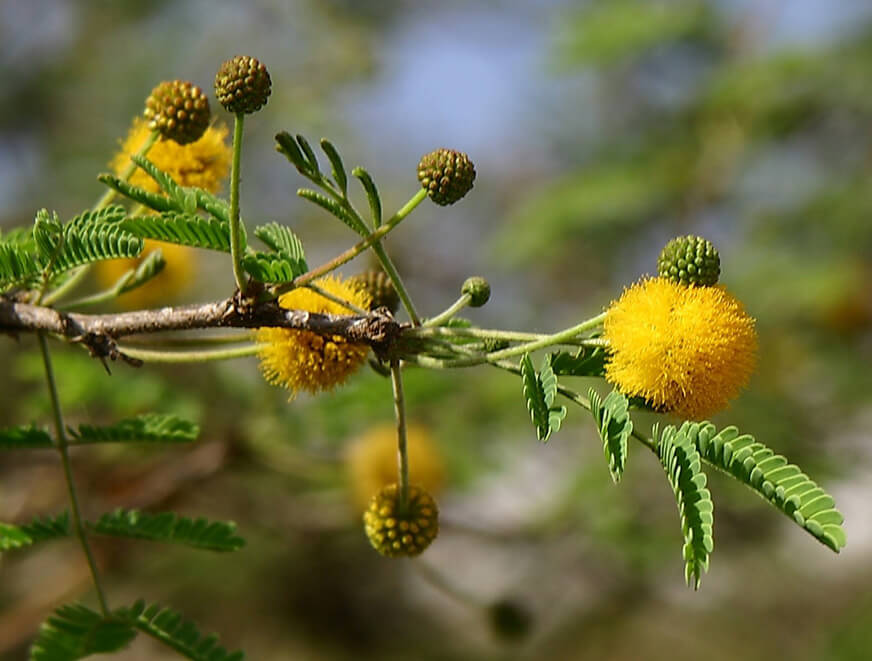- +033 2572 7171
- info@dhanvantary.com

4.5 Rating | 4500 Review

4.5 Rating | 4500 Review
Irimeda (Acacia farnesiana) is an ethnomedicinal ayurvedic plant. It is widely used in traditional medicines to treat various oral and mouth problems, relaxing muscles and balances tridoshas. Also, in modern medicine, various properties of Irimeda are discovered such as Antidysenterica, Antiulcer, Antidiabetics, Anti-inflammatory, Antimicrobial, antioxidant etc. It is also used in biofuel production.

Kingdom
Plantae
Order
Fabales
Family
Fabaceae
Sub-Family
Mimosaceae
Genus
Acacia
Species
A.farnesiana
Phylum
Spermatophyta
Class
Dicotyledonae
Irimeda is a tropical and subtropical species, found in places where the annual mean temperature range is 15°-30°C. It is a versatile, drought-hardy species, and grows on a wide range of well drained soils. It is a full sunlight shrub and it survives in the fires and regrows from its basal roots. It is indigenous to the Indian subcontinent as also in tropical Africa, Burma, Srilanka.
Irimeda has various phytochemicals due to these compounds, it shows a variety of pharmacognostic activities. These are:
|
Part of the Plant |
Phytonutrients |
Properties |
|
Leaves |
Diterpenoids, aromadendrin, Lipids. Carotenoids, reducing and nonreducing sugars. |
Anti-inflammatory, anti-diabetics, demulcent. |
|
Bark |
Polyphenols: gallic acid, ellagic acid, digallic acid, Kaempferol, atomadendrin and naringenin and rutin. |
Demulcent, antidysenteric, anti-inflammatory, stomatitis, ulcers, swollen gums, dental caries, skin diseases, anti-tubercular, antiseptic. |
|
Flowers |
Volatile compounds: methyl salicylate, anisaldehyde, geraniol, benzaldehyde. |
Muscle relaxant, anthelmintic, cardiac depressant, sedative, anti-oxidant. |
|
Seeds |
Rich in amino acid: lysine, arginine,glycine, methionine. |
Clotting agent, Anti-inflammatory. |
Irimeda is a valuable multipurpose species and all parts of the shrub can be used. Their uses are following:
Bark, flower, leaves, pods
